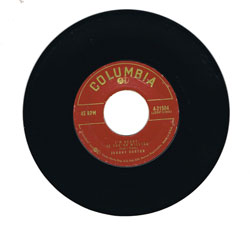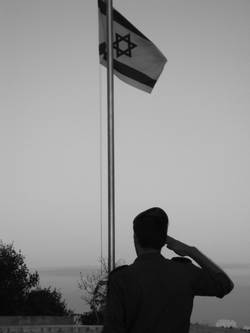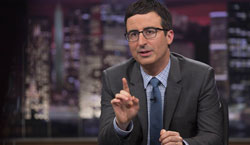Sam Green was at Pollak Theatre for the visiting artists showcasing What We Need Is The Impossible, a collection of his various documentaries on Monday, April 22.
The full film is 80 minutes long and consists of seven short documentaries that cover a wide variety of subjects.
The first documentary was Utopia 3. The eight minute long film was about the world’s largest shopping mall, the New South China Mall. It was the most interesting of the short films seen, most of the documentary showcases the vast emptiness of the mall.
The New South China Mall is located in southern China in the city of Dongguan. Not only is it too “out of the way” for most shoppers, those that do come to the mall are the working class locals, who don’t even have the money to make purchases. As of now, the mall is considered a dead mall and will soon be torn down.
The next documentary was Pie Fight 69, another eight minute film that used found footage of the independent film company Grand Central Station starting a pie fight at a film festival.
A more humorous topic, the pie fight was orchestrated by Grand Central Station to get publicity and hopefully funding, but unfortunately all the company got was 15 minutes of fame.
The next eight minute documentary was The Fabulous Stains, showcasing how an initial failure for a movie showcasing a wannabe feminist punk rock band eventually turned into a cult classic.
The story behind the film was fascinating, considering it was finished but ultimately never saw a big screen release and was doomed to late night cable television. However, it developed a cult following which ultimately led to it getting an official video release.
The last of the eight minute documentaries was Lot 63 Grave C, a much more serious story about the tragedy of Altamont.
Altamont was meant to be a west coast version of Woodstock, featuring famous bands playing live, which included groups such as The Rolling Stones.
However, the concert was cut short when a man was murdered in the audience. That man, Meredith Hunter, would be buried in an unmarked grave.
The next documentary was The Universal Language, the story of Esperanto, the ambitious created language meant so that anyone can speak it and communicate with people of completely different ethnicities. The story of the rise and fall of Esperanto is tragic, but many hold out that the idea behind Esperanto; unity of all people, can still be achieved.
The last two were short two minute films. The first, N Judah 530, is a silent film of a train leaving a station. It was definitely the most eyebrow raising as the message is unclear since the only sound heard is from the train. The second is Clear Glasses, a short story about the antiwar activist Mark Rudd, and the glasses Rudd sent to Green.
Andrew Demirjian, specialist professor of communication, was in attendance as the introducer for Sam Green.
“I like the subjects that he chooses and his poetic handling of the material,” says Demirjian.
The wide variety of topics Sam Green chooses to cover for his documentaries ensures that they are always fresh and interesting.
Green was nominated for an Academy Award in 2004. The Best Documentary Feature nomination was for The Weather Underground, a film following a radical group called The Weathermen.
If you ever have the chance to see one of Green’s documentaries, I highly recommend you do so. Check the filmmaker’s website, samgreen.to, for more information and instant downloads of documentaries.



